- Home
- P. D. James
The Mistletoe Murder and Other Stories Page 2
The Mistletoe Murder and Other Stories Read online
Page 2
The evening was spent in desultory talk in the sitting room, dozing and reading. The supper was light, soup and herb omelettes – a welcome contrast to the heaviness of the goose and Christmas pudding – served very early, as was the custom, so that the Seddons could get away to spend the night with friends in the village. After dinner we moved again to the ground-floor sitting room. Rowland put on the gramophone, then suddenly seized my hands and said, ‘Let’s dance.’ The gramophone was the kind that automatically played a series of records and as one popular disc dropped after another – ‘Jeepers Creepers’, ‘Beer Barrel Polka’, ‘Tiger Rag’, ‘Deep Purple’ – we waltzed, tangoed, fox-trotted, quick-stepped round the sitting room and out into the hall. Rowland was a superb dancer.
I hadn’t danced since Alastair’s death but now, caught up in the exuberance of movement and rhythm, I forgot my antagonism and concentrated on following his increasingly complicated lead.
The spell was broken when, breaking into a waltz across the hall and tightening his grasp, he said: ‘Our young hero seems a little subdued. Perhaps he’s having second thoughts about this job he’s volunteered for.’
‘What job?’
‘Can’t you guess? French mother, Sorbonne-educated, speaks French like a native, knows the country. He’s a natural.’
I didn’t reply. I wondered how he knew, if he had a right to know. He went on:
‘There comes a moment when these gallant chaps realise that it isn’t play-acting any more. From now on it’s for real. Enemy territory beneath you, not dear old Blighty; real Germans, real bullets, real torture-chambers and real pain.’
I thought: And real death, and slipped out of his arms, hearing, as I re-entered the sitting room, his low laugh at my back.
Shortly before ten o’clock my grandmother went up to bed, telling Rowland that she would get the coins out of the study safe and leave them with him. He was due to drive back to London the next day; it would be helpful if he could examine them tonight. He sprang up at once and they left the room together. Her final words to Paul were: ‘There’s an Edgar Wallace play on the Home Service which I may listen to. It ends at eleven. Come to say goodnight then, if you will, Paul. Don’t leave it any later.’
As soon as they’d left, Paul said: ‘Let’s have the music of the enemy,’ and replaced the dance records with Wagner. As I read, he got out a pack of cards from the small desk and played a game of patience, scowling at the cards with furious concentration while the Wagner, much too loud, beat against my ears. When the carriage-clock on the mantelpiece struck eleven, heard in a lull in the music, he swept the cards together and said: ‘Time to say goodnight to Grandmama. Is there anything you want?’
‘No,’ I said, a little surprised. ‘Nothing.’
What I did want was the music a little less loud and when he left the room I turned it down. He was back very quickly. When the police questioned me next day, I told them that I estimated that he was away for about three minutes. It certainly couldn’t have been longer. He said calmly: ‘Grandmama wants to see you.’
We left the sitting room together and crossed the hall. It was then that my senses, preternaturally acute, noticed two facts. One I told the police; the other I didn’t. Six mistletoe berries had dropped from the mixed bunch of mistletoe and holly fixed to the lintel above the library door and lay like scattered pearls on the polished floor. And at the foot of the stairs there was a small puddle of water. Seeing my glance, Paul took out his handkerchief and mopped it up. He said: ‘I should be able to take a drink up to Grandmama without spilling it.’
She was propped up in bed under the canopy of the four-poster, looking diminished, no longer formidable, but a tired, very old woman. I saw with pleasure that she had been reading the book I’d given her. It lay open on the round bedside table beside the table-lamp, her wireless, the elegant little clock, the small half-full carafe of water with a glass resting over its rim, and a porcelain model of a hand rising from a frilled cuff on which she had placed her rings.
She held out her hand to me; the fingers were limp, the hand cold and listless, the grasp very different from the firm handshake with which she had first greeted me. She said: ‘Just to say goodnight, my dear, and thank you for coming. In wartime, family feuds are an indulgence we can no longer afford.’
On impulse I bent down and kissed her forehead. It was moist under my lips. The gesture was a mistake. Whatever it was she wanted from me, it wasn’t affection.
We returned to the sitting room. Paul asked me if I drank whisky. When I said that I disliked it, he fetched from the drinks cupboard a bottle for himself and a decanter of claret, then took up the pack of cards again and suggested that he should teach me poker. So that was how I spent Christmas night from about ten past eleven until nearly two in the morning, playing endless games of cards, listening to Wagner and Beethoven, hearing the crackle and hiss of burning logs as I kept up the fire, watching my cousin drink steadily until the whisky bottle was empty. In the end I accepted a glass of claret. It seemed both churlish and censorious to let him drink alone. The carriage-clock struck 1.45 before he roused himself and said: ‘Sorry, cousin. Rather drunk. Be glad of your shoulder. To bed, to sleep, perchance to dream.’
We made slow progress up the stairs. I opened his door while he stood propped against the wall. The smell of whisky was only faint on his breath. Then with my help he staggered over to the bed, crashed down and was still.
*
At eight o’clock next morning Mrs Seddon brought in my tray of early morning tea, switched on the electric fire and went quietly out with an expressionless, ‘Good morning, Madam.’
Half-awake, I reached over to pour the first cup when there was a hurried knock, the door opened, and Paul entered. He was already dressed and, to my surprise, showed no signs of a hangover. He said: ‘You haven’t seen Maybrick this morning, have you?’
‘I’ve only just woken up.’
‘Mrs Seddon told me his bed hadn’t been slept in. I’ve just checked. He doesn’t appear to be anywhere in the house. And the library door is locked.’
Some of his urgency conveyed itself to me. He held out my dressing-gown and I slipped into it and, after a second’s thought, pushed my feet into my outdoor shoes, not my bedroom slippers. I said: ‘Where’s the library key?’
‘On the inside of the library door. We’ve only the one.’
The hall was dim, even when Paul switched on the light, and the fallen berries from the mistletoe over the library door still gleamed milk-white on the dark wooden floor. I tried the door and, leaning down, looked through the keyhole. Paul was right, the key was in the lock. He said: ‘We’ll get in through the French windows. We may have to break the glass.’
We went out by a door in the north wing. The air stung my face. The night had been frosty and the thin covering of snow was still crisp except where Paul and I had frolicked the previous day. Outside the library was a small patio about six feet in width leading to a gravel path bordering the lawn. The double set of footprints were plain to see. Someone had entered the library by the French windows and then left by the same route. The footprints were large, a little amorphous, probably made, I thought, by a smooth-soled rubber boot, the first set partly overlaid by the second.
Paul warned: ‘Don’t disturb the prints. We’ll edge our way close to the wall.’
The door in the French windows was closed but not locked. Paul, his back hard against the window, stretched out a hand to open it, slipped inside and drew aside first the blackout curtain and then the heavy brocade. I followed. The room was dark except for the single green-shaded lamp on the desk. I moved slowly towards it in fascinated disbelief, my heart thudding, hearing behind me a rasp as Paul violently swung back the two sets of curtains. The room was suddenly filled with a clear morning light annihilating the green glow, making horribly visible the thing sprawled over the desk.
He had been killed by a blow of immense force which had crushed the top of his head.
Both his arms were stretched out sideways, resting on the desk. His left shoulder sagged as if it, too, had been struck, and the hand was a spiked mess of splintered bones in a pulp of congealed blood. On the desktop the face of his heavy gold wristwatch had been smashed and tiny fragments of glass glittered like diamonds. Some of the coins had rolled onto the carpet and the rest littered the desktop, sent jangling and scattering by the force of the blows. Looking up I checked that the key was indeed in the lock. Paul was peering at the smashed wristwatch.
He said: ‘Half-past ten. Either he was killed then or we’re meant to believe he was.’
There was a telephone beside the door and I waited, not moving, while he got through to the exchange and called the police. Then he unlocked the door and we went out together. He turned to re-lock – it turned noiselessly as if recently oiled – and pocketed the key. It was then that I noticed that we had squashed some of the fallen mistletoe berries.
*
Inspector George Blandy arrived within thirty minutes. He was a solidly built countryman, his straw-coloured hair so thick that it looked like thatch above the square, weather-mottled face. He moved with deliberation, whether from habit or because he was still recovering from an over-indulgent Christmas it was impossible to say.
He was followed soon afterwards by the Chief Constable himself. Paul had told me about him. Sir Rouse Armstrong was an ex-colonial Governor, and one of the last of the old school of Chief Constables, obviously past normal retiring age. Very tall, with the face of a meditative eagle, he greeted my grandmother by her Christian name and followed her upstairs to her private sitting room with the grave conspiratorial air of a man called in to advise on some urgent and faintly embarrassing family business. I had the feeling that Inspector Blandy was slightly intimidated by his presence and I hadn’t much doubt who would be effectively in charge of this investigation.
I expect you are thinking that this is typical Agatha Christie, and you are right; that’s exactly how it struck me at the time. But one forgets, homicide rate excepted, how similar my mother’s England was to Dame Agatha’s Mayhem Parva. And it seems entirely appropriate that the body should have been discovered in the library, that most fatal room in popular British fiction.
The body couldn’t be moved until the police surgeon arrived. He was at an amateur pantomime in the local town and it took some time to reach him. Dr Bywaters was a rotund, short, self-important little man, red-haired and red-faced, whose natural irascibility would, I thought, have deteriorated into active ill-humour if the crime had been less portentous than murder and the place less prestigious than the manor.
Paul and I were tactfully excluded from the study while he made his examination. Grandmama had decided to remain upstairs in her sitting room. The Seddons, fortified by the consciousness of an unassailable alibi, were occupied making and serving sandwiches and endless cups of coffee and tea, and seemed for the first time to be enjoying themselves. Rowland’s Christmas offerings were coming in useful and, to do him justice, I think the knowledge would have amused him. Heavy footsteps tramped backwards and forwards across the hall, cars arrived and departed, telephone calls were made. The police measured, conferred, photographed. The body was eventually taken away shrouded on a stretcher and lifted into a sinister little black van while Paul and I watched from the sitting-room window.
Our fingerprints had been taken, the police explained, to exclude them from any found on the desk. It was an odd sensation to have my fingers gently held and pressed onto what I remember as a kind of inkpad. We were, of course, questioned, separately and together. I can remember sitting opposite Inspector Blandy, his large frame filling one of the armchairs in the sitting room, his heavy legs planted on the carpet, as conscientiously he went through every detail of Christmas Day. It was only then that I realised that I had spent almost every minute of it in the company of my cousin.
*
At 7.30 the police were still in the house. Paul invited the Chief Constable to dinner, but he declined, less, I thought, because of any reluctance to break bread with possible suspects, than from a need to return to his grandchildren.
Before leaving he paid a prolonged visit to my grandmother in her room, then returned to the sitting room to report on the results of the day’s activities. I wondered whether he would have been as forthcoming if the victim had been a farm labourer and the place the local pub.
He delivered his account with the staccato self-satisfaction of a man confident that he’d done a good day’s work.
‘I’m not calling in the Yard. I did eight years ago when we had our last murder. Big mistake. All they did was upset the locals. The facts are plain enough. He was killed by a single blow delivered with great force from across the desk and while he was rising from the chair. Weapon, a heavy blunt instrument. The skull was crushed but there was little bleeding – well, you saw for yourselves. I’d say he was a tall murderer; Maybrick was over six foot two. He came through the French windows and went out the same way.
‘We can’t get much from the footprints, too indistinct, but they’re plain enough, the second set overlaying the first. Could have been a casual thief, perhaps a deserter, we’ve had one or two incidents lately. The blow could have been delivered with a rifle butt. It would be about right for reach and weight. The library door to the garden may have been left open. Your grandmother told her butler Seddon she’d see to the locking up but asked Maybrick to check on the library before he went to bed.
‘In the blackout the murderer wouldn’t have known the library was occupied. Probably tried the door, went in, caught a gleam of the money and killed almost on impulse.’
Paul asked: ‘Then why not steal the coins?’
‘Saw that they weren’t legal tender. Difficult to get rid of. Or he might have panicked or thought he heard a noise.’
Paul asked: ‘And the locked door into the hall?’
‘Murderer saw the key and turned it to prevent the body being discovered before he had a chance to get well away.’
He paused, and his face assumed a look of cunning which sat oddly on the aquiline, somewhat supercilious features. He said: ‘An alternative theory is that Maybrick locked himself in. Expected a secret visitor and didn’t want to be disturbed. One question I have to ask you, my boy. Rather delicate. How well did you know Maybrick?’
Paul said: ‘Only slightly. He’s a second cousin.’
‘You trusted him? Forgive my asking.’
‘We had no reason to distrust him. My grandmother wouldn’t have asked him to sell the coins for her if she’d had any doubts. He is family. Distant, but still family.’
‘Of course. Family.’ He paused, then went on: ‘It did occur to me that this could have been a staged attack which went over the top. He could have arranged with an accomplice to steal the coins. We’re asking the Yard to look at his London connections.’
I was tempted to say that a faked attack which left the pretend victim with a pulped brain had gone spectacularly over the top, but I remained silent. The Chief Constable could hardly order me out of the sitting room – after all, I had been present at the discovery of the body – but I sensed his disapproval at my obvious interest. A young woman of proper feeling would have followed my grandmother’s example and taken to her room.
Paul said: ‘Isn’t there something odd about that smashed watch? The fatal blow to the head looked so deliberate. But then he strikes again and smashes the hand. Could that have been to establish the exact time of death? If so, why? Or could he have altered the watch before smashing it? Could Maybrick have been killed later?’
The Chief Constable was indulgent to this fancy: ‘A bit far-fetched, my boy. I think we’ve established the time of death pretty accurately. Bywaters puts it at between ten and eleven, judging by the degree of rigor. And we can’t be sure in what order the killer struck.
‘He could have hit the hand and shoulder first, and then the head. Or he could have gone for the head, then hit out wildly in panic.
Pity you didn’t hear anything, though.’
Paul said: ‘We had the gramophone on pretty loudly and the doors and walls are very solid. And I’m afraid that by 11.30 I wasn’t in a state to notice much.’
As Sir Rouse rose to go, Paul asked: ‘I’ll be glad to have the use of the library if you’ve finished with it, or do you want to seal the door?’
‘No, my boy, that’s not necessary. We’ve done all we need to do. No prints, of course, but then we didn’t expect to find them. They’ll be on the weapon, no doubt, unless he wore gloves. But he’s taken the weapon away with him.’
The house seemed very quiet after the police had left. My grandmother, still in her room, had dinner on a tray and Paul and I, perhaps unwilling to face that empty chair in the dining room, made do with soup and sandwiches in the sitting room. I was restless, physically exhausted; I was also a little frightened.
It would have helped if I could have spoken about the murder, but Paul said wearily: ‘Let’s give it a rest. We’ve had enough of death for one day.’
So we sat in silence. From 7.40 we listened to Radio Vaudeville on the Home Service – Billy Cotton and His Band, the BBC Symphony Orchestra with Adrian Boult. After the nine o’clock news and the 9.20 war commentary, Paul murmured that he’d better check with Seddon that he’d locked up.
It was then that, partly on impulse, I made my way across the hall to the library. I turned the door-handle gently as if I feared to see Rowland still sitting at the desk, sorting through the coins with avaricious fingers. The blackout was drawn, the room smelled of old books, not blood. The desk, its top clear, was an ordinary unfrightening piece of furniture, the chair neatly in place.
I stood at the door convinced that this room held a clue to the mystery. Then, from curiosity, I moved over to the desk and pulled out the drawers. On either side was a deep drawer with a shallower one above it. The left was so crammed with papers and files that I had difficulty in opening it. The right-hand deep drawer was clear. I opened the smaller drawer above it. It contained a collection of bills and receipts. Rifling among them I found a receipt for £3,200 from a London coin dealer listing the purchase and dated five weeks previously.

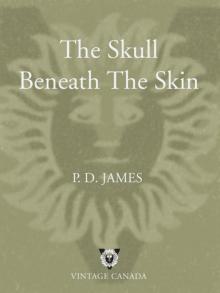 The Skull Beneath the Skin
The Skull Beneath the Skin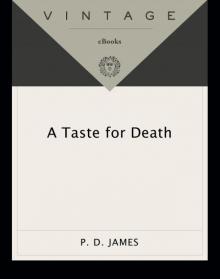 A Taste for Death
A Taste for Death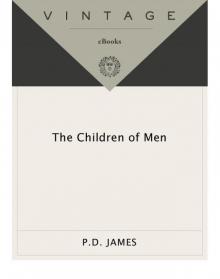 The Children of Men
The Children of Men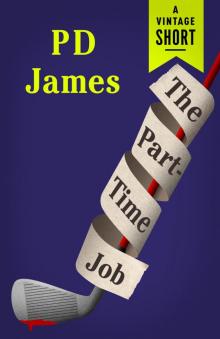 The Part-Time Job
The Part-Time Job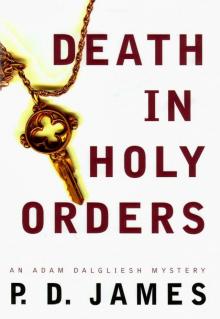 Death in Holy Orders
Death in Holy Orders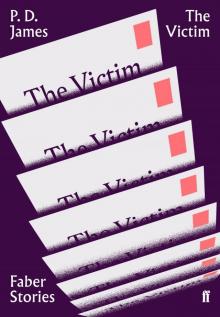 The Victim
The Victim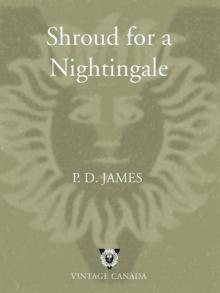 Shroud for a Nightingale
Shroud for a Nightingale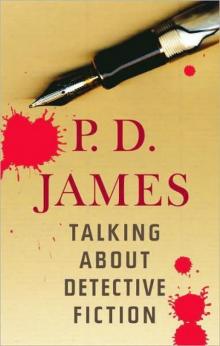 Talking about Detective Fiction
Talking about Detective Fiction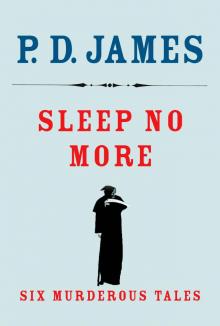 Sleep No More
Sleep No More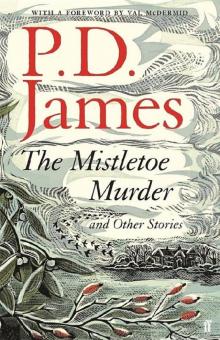 The Mistletoe Murder and Other Stories
The Mistletoe Murder and Other Stories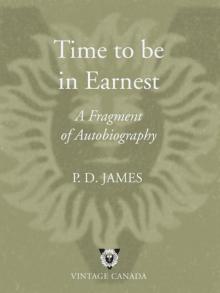 Time to Be in Earnest
Time to Be in Earnest Original Sin
Original Sin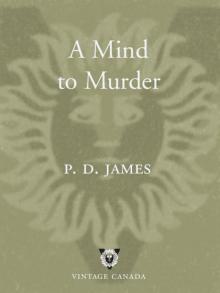 A Mind to Murder
A Mind to Murder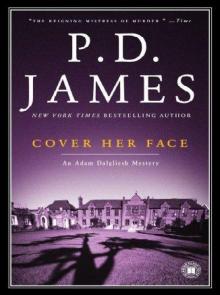 Cover Her Face
Cover Her Face Innocent Blood
Innocent Blood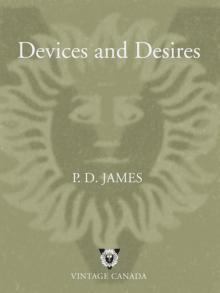 Devices and Desires
Devices and Desires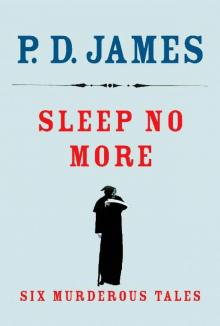 Sleep No More: Six Murderous Tales
Sleep No More: Six Murderous Tales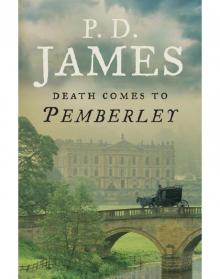 Death Comes to Pemberley
Death Comes to Pemberley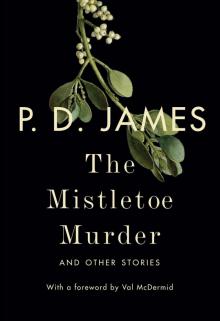 The Mistletoe Murder
The Mistletoe Murder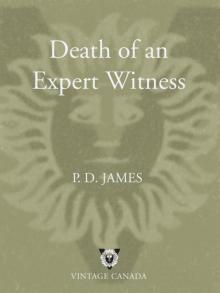 Death of an Expert Witness
Death of an Expert Witness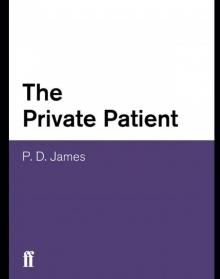 The Private Patient
The Private Patient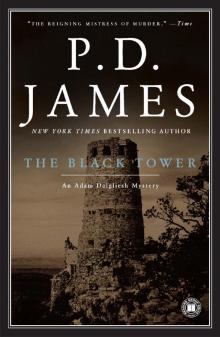 The Black Tower
The Black Tower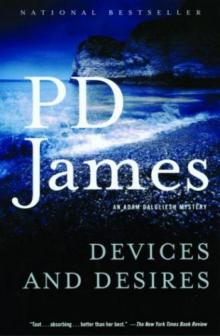 Devices & Desires - Dalgleish 08
Devices & Desires - Dalgleish 08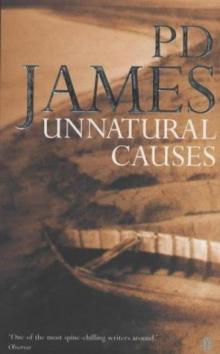 Unnatural Causes
Unnatural Causes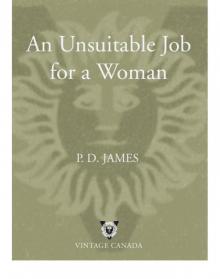 An Unsuitable Job for a Woman
An Unsuitable Job for a Woman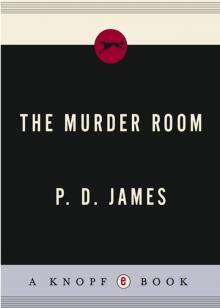 The Murder Room
The Murder Room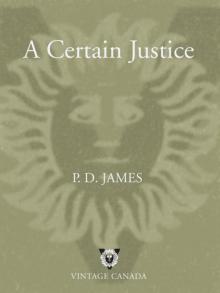 A Certain Justice
A Certain Justice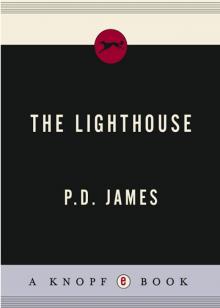 The Lighthouse
The Lighthouse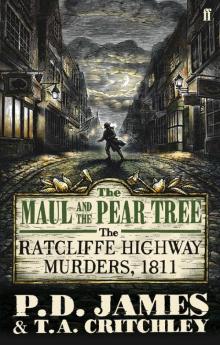 The Maul and the Pear Tree
The Maul and the Pear Tree